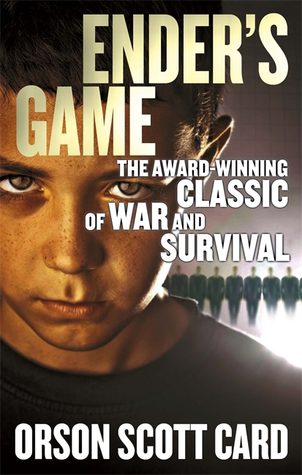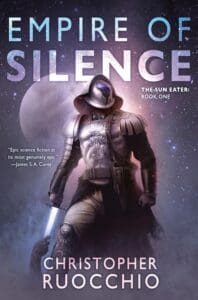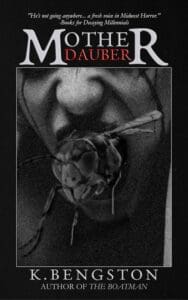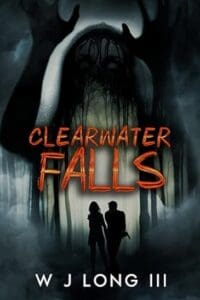Rating: 8.5/10
Synopsis
Andrew “Ender” Wiggin thinks he is playing computer simulated war games; he is, in fact, engaged in something far more desperate. The result of genetic experimentation, Ender may be the military genius Earth desperately needs in a war against an alien enemy seeking to destroy all human life. The only way to find out is to throw Ender into ever harsher training, to chip away and find the diamond inside, or destroy him utterly. Ender Wiggin is six years old when it begins. He will grow up fast.
But Ender is not the only result of the experiment. The war with the Buggers has been raging for a hundred years, and the quest for the perfect general has been underway almost as long. Ender’s two older siblings, Peter and Valentine, are every bit as unusual as he is, but in very different ways. While Peter was too uncontrollably violent, Valentine very nearly lacks the capability for violence altogether. Neither was found suitable for the military’s purpose. But they are driven by their jealousy of Ender, and by their inbred drive for power. Peter seeks to control the political process, to become a ruler. Valentine’s abilities turn more toward the subtle control of the beliefs of commoner and elite alike, through powerfully convincing essays. Hiding their youth and identities behind the anonymity of the computer networks, these two begin working together to shape the destiny of Earth-an Earth that has no future at all if their brother Ender fails.
Review
Ender’s Game is the story of a war for humanities survival, a tale of epic proportions, against an alien aggressor. But what it is mainly is a story of human struggle, of those forced into the battle. A story of what it takes to build a monster capable of destroying others, and the betrayal of innocence. It’s truly hard for me to summarise what I felt about this, to condense it into words and form it into a review that says either read this, or hell no, stay away. I know I loved this novel … and I know there’s some parts of it that didn’t sit entirely right with me. But I guess that’s what happens when you put the world in the hands of a six-year-old that doesn’t want it?
In short (very short) the plot of this book is as follows: humanity has been attacked by the buggers twice, a race of sentient, space-faring bugs and the only just survived the Second Invasion at the hands of the hero, Mazer Rackham. Now, Mazer is gone, dead and there’s a Third Invasion coming – one humanity doesn’t have a chance of surviving. Not without a new hero, a commander that led them through the final battle. Though, to do this, they’ve been breeding, then monitoring children. Young geniuses. Those young geniuses that have a chance at being the man Mazer Rackham was. Ender is one of those children. And he’ll be forced into the Battle School to see whether he could be the one to turn the tide of battle. The plot was very intriguing and reached very unexpected points. What I found most interesting was that this is set in the backdrop of a war that will likely wipe out humanity – no higher stakes – and yet you only ever get the feeling of personal struggle. Of the trials and games Ender is put through and his genius that gets him out of it. It’s very clever writing that you don’t quite see the scope of things as you’re thoroughly embedded into Ender’s head like one of the monitors. It’s clever and there’s a lot of twists you will never see coming. I loved the mystery.
Ender is … I don’t really know how to describe him. A monster? A genius? A small, innocent child? A killer? He’s perhaps all of those. But mainly he’s just Ender the Third. His voice is certainly different and surprising, not what you’d expect from a child and perhaps more of what you’d see from a sociopath or a genius but perhaps not that extreme. He’s the embodiment of innocence forced into monstrosity. A child pushed to be brutal. A child who doesn’t want any of it, but is tricked by the adults. The narrative positions the Battle School as child genius vs child genius, but it really is against the adults. But the children are way smarter than the adults and also a lot more innocent – which brings me to the point that the book shows how even with genius level intelligence, innocence can be trumped by the brutality of adults. It can be funnelled, moulded into the way they want it to be used. I think that exploration was one of my favourite parts of this – the novel really does get philosophical and you can draw from that what you want. It’s certainly a novel worth thinking on. I love the way Ender’s Game made me think and the dark and light paths it took me down. There’s no shortage of quandaries to sick your teeth into. It’s much more than humans fighting aliens. It’s about understanding and communicating and what the lack thereof can produce.
Overall, I enjoyed reading this book; it’s deep and set my feelings spinning all over the plan – there’s moments of joy and times where you just want to pick Ender up and help him. For lovers of sci-fi and those of you who love to sink your teeth into something that will force you to think hard about certain aspects of the book. And the brilliant thing about this one is that it’s a standalone – the story does continue but everything in this book is wrapped up enough for it to sit that way.





Leave a Reply